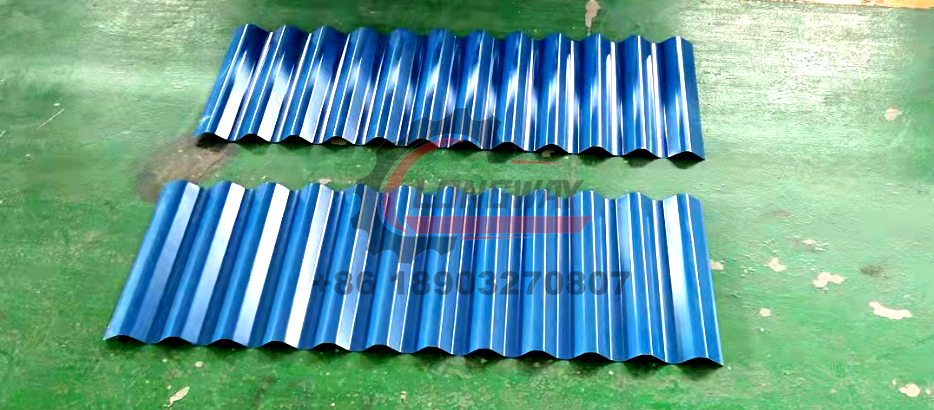custom square pipe roll forming machine
Custom Square Pipe Roll Forming Machine An Industry Revolution
In the rapidly evolving world of manufacturing, the demand for high-quality, custom square pipes has reached unprecedented heights. To meet this demand, the roll forming industry has seen significant advancements, particularly with the introduction of custom square pipe roll forming machines. These machines play a crucial role in producing square pipes that meet specific design and performance standards, making them essential for various applications across different sectors.
Understanding Roll Forming
Roll forming is a continuous bending process in which a long strip of metal is fed through a sequence of metal forming rolls, gradually shaping the material into a desired cross-sectional profile. Unlike traditional methods that rely on cutting and welding, roll forming is a more efficient process that produces uniform, high-quality shapes with minimal waste. This technique is particularly advantageous for producing square pipes, as it allows for consistency in dimensions and mechanical properties.
The Advantages of Custom Square Pipe Roll Forming Machines
1. Precision Engineering Custom square pipe roll forming machines are designed with precision in mind. They feature advanced technology that enables manufacturers to achieve exact specifications for square pipe dimensions, wall thickness, and overall tolerances. This level of precision is essential for applications in construction, automotive, and structural engineering.
2. Versatility These machines are highly versatile, capable of producing a wide range of sizes and profiles. Whether it is small or large square pipes, varying wall thicknesses, or unique designs, custom roll forming machines can be tailored to fulfill specific project requirements. This versatility is a significant advantage for manufacturers looking to cater to diverse customer needs.
custom square pipe roll forming machine

3. Cost Efficiency One of the most substantial benefits of using custom square pipe roll forming machines is cost efficiency. The continuous production process eliminates the need for extensive labor while reducing material waste. Furthermore, these machines can operate at high speeds, increasing overall production capacity and reducing manufacturing costs per unit.
4. Consistent Quality Quality control is vital in any manufacturing process. Roll forming machines allow for real-time monitoring of the production process, ensuring that every square pipe meets the necessary standards before it reaches the market. This focus on quality translates to fewer defects and a better final product, resulting in higher customer satisfaction.
5. Reduced Lead Times Traditional methods of pipe production often involve multiple steps, leading to longer lead times. However, with custom square pipe roll forming machines, the streamlined process leads to quicker turnaround times without compromising quality. This efficiency is particularly beneficial for industries requiring just-in-time deliveries.
Applications of Custom Square Pipes
Custom square pipes are used in a variety of applications due to their structural integrity and aesthetic appeal. In the construction industry, they are often employed in frame work, scaffolding, and support systems. The automotive industry utilizes square pipes in vehicle frames and components that require lightweight yet strong materials. Additionally, the furniture industry depends on square pipes for the creation of stylish and durable furniture designs.
Conclusion
The introduction of custom square pipe roll forming machines has revolutionized the production of square pipes across various industries. With their precision engineering, versatility, cost efficiency, consistent quality, and reduced lead times, these machines are becoming increasingly indispensable. As manufacturers continue to seek innovative solutions to meet the growing demand for structural components, investing in advanced roll forming technology will undoubtedly play a pivotal role in shaping the future of manufacturing. The evolution of custom square pipe production not only reflects technological advancements but also underscores the importance of meeting contemporary needs in a fast-paced market. By embracing these advancements, manufacturers can ensure they remain competitive and capable of delivering high-quality products that serve the needs of various sectors.
-
Roof Panel Machines: Buying Guide, Types, and PricingNewsJul.04, 2025
-
Purlin Machines: Types, Features, and Pricing GuideNewsJul.04, 2025
-
Metal Embossing Machines: Types, Applications, and Buying GuideNewsJul.04, 2025
-
Gutter Machines: Features, Types, and Cost BreakdownNewsJul.04, 2025
-
Cut to Length Line: Overview, Equipment, and Buying GuideNewsJul.04, 2025
-
Auto Stacker: Features, Applications, and Cost BreakdownNewsJul.04, 2025
-
Top Drywall Profile Machine Models for SaleNewsJun.05, 2025








